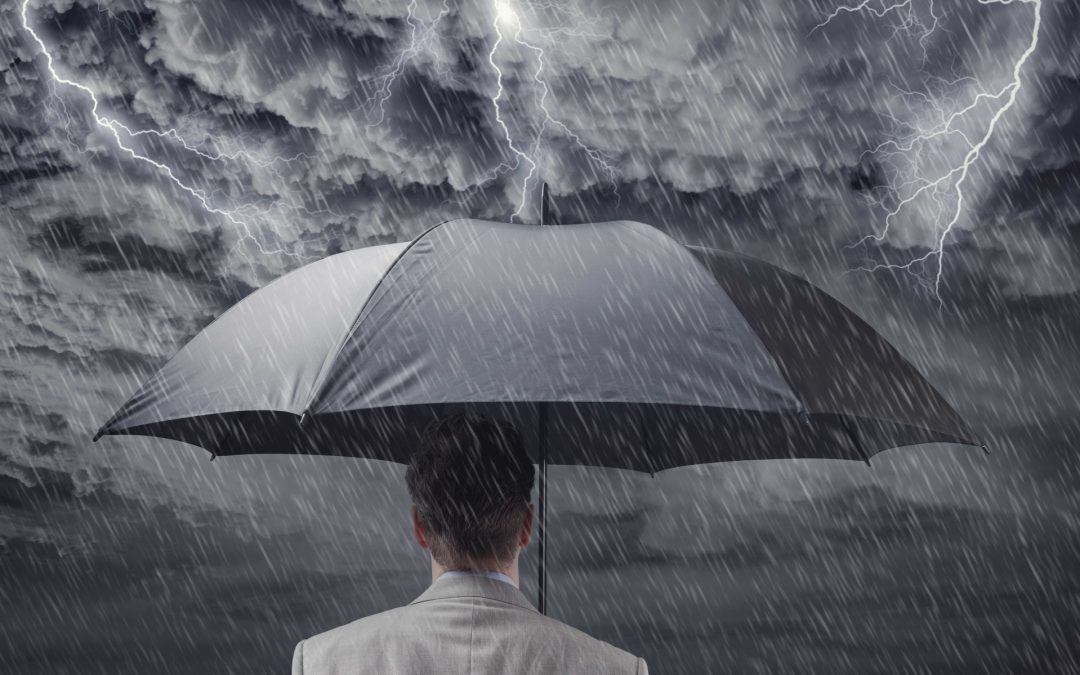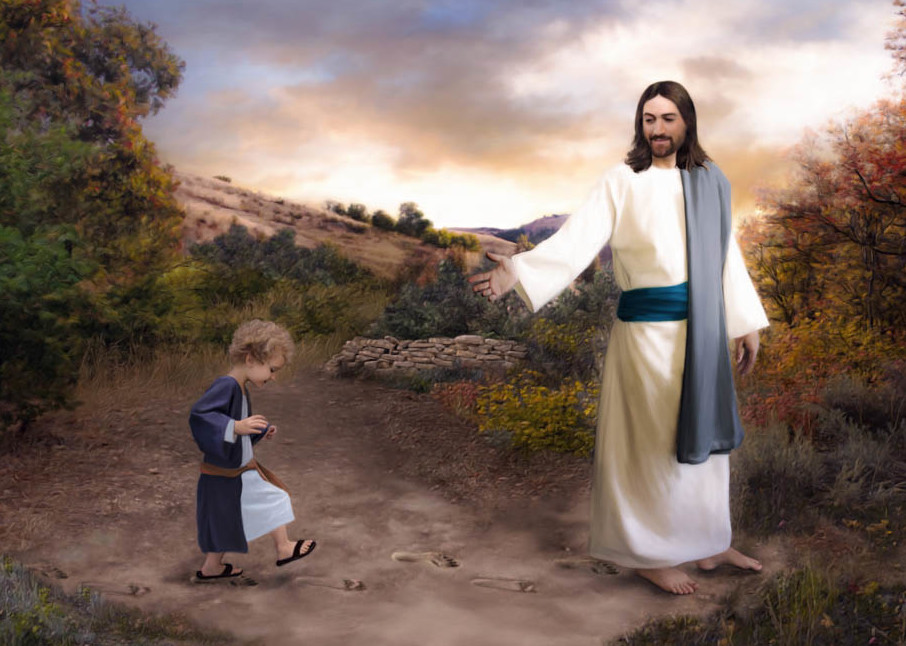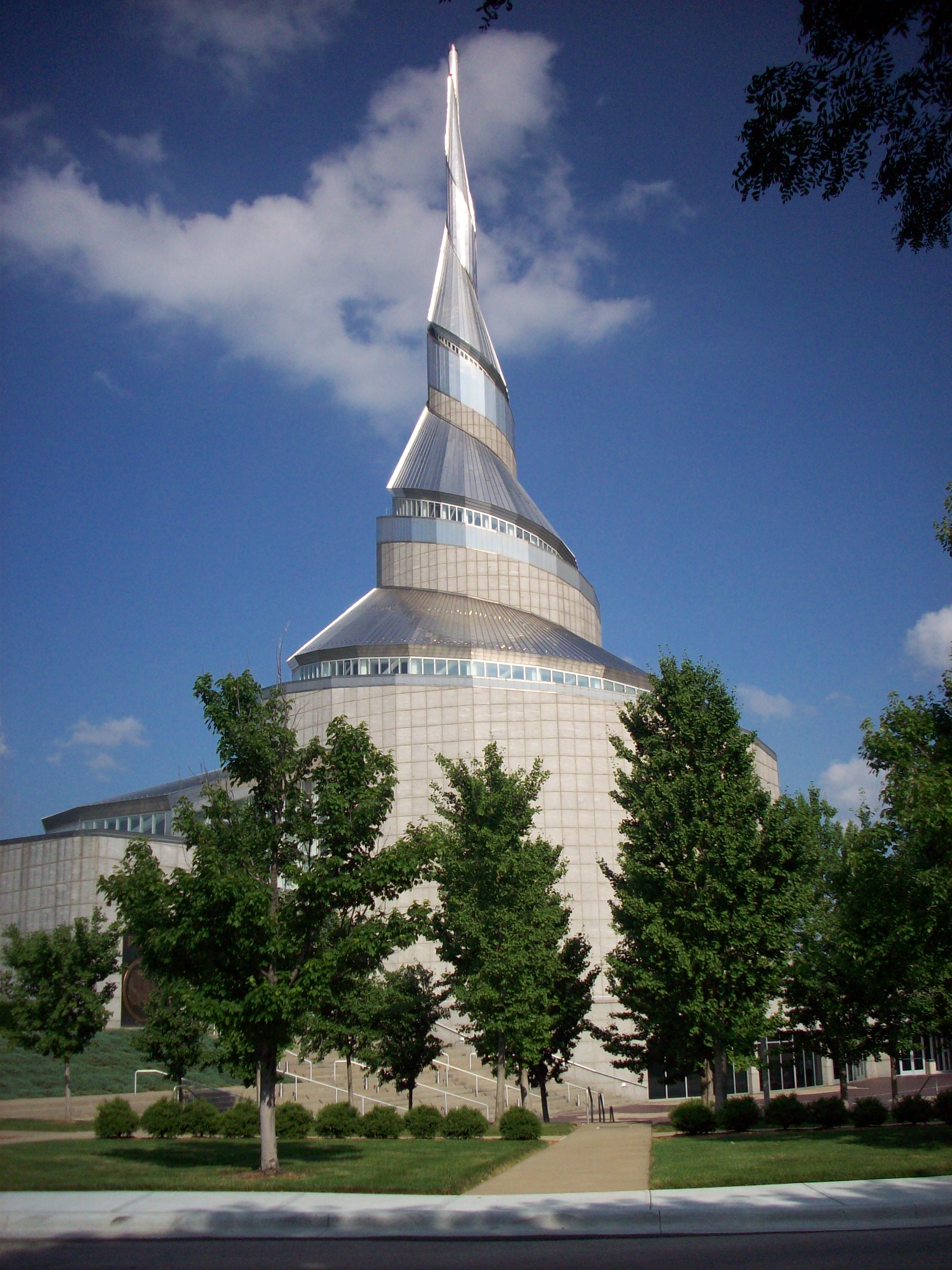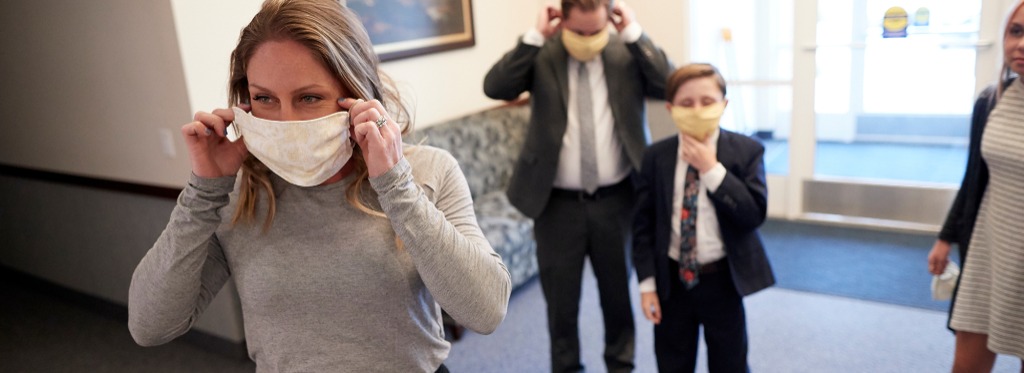The Lonely Man
December 14, 1989
I sat in silence on a bus bound for Pusan, staring out the window, studying the rural landscape of rice fields passing by.
Today was transfer day, as well as the big mission Christmas celebration. Today was the day I’d be getting a new tongbanja. That means “companion” in Korean. His name was Elder Benjamin, and I couldn’t be more excited.
My current tongbanja, Elder Lee, sat next to me staring off into nothingness. He was deaf, so he didn’t say much. We had been sent to Taegu to bring deaf people into the fold. But after two months, the effort was considered a failure. We could not break into the tight-nit group of deaf Koreans. So, the decision was made to send Elder Lee south to the island Chejudo, where he could have more success. To him, this trip was one of shame and defeat.
Two other Elders, Hansen and Shumway, rode on the other side of the isle. They were silent as well, but I had absolutely no idea why.
For me, every minute on this bus brought me closer to the best missionary in the whole mission, and I was ready for a change.
You see, the previous months were terrible. I know it was mostly my fault; I’m such a cutup. If I see a joke, I’ll tell it. People like to make fun of me because my last name is Elder. As a missionary, everyone had to call me Elder Elder. Yeah, it’s pretty funny.
I suppose I could have just told them not to make fun of me, but instead I went with it, trying to go for the big laugh. My signature joke was this: “Have you ever been caught in an Elder loop? Elder Elder Elder Elder Elder Elder Elder Elder …” No one ever thought that was funny.
Near the beginning of my mission, I had turned off one Elder so much that he decided to spread all these interesting rumors about me in the Masan Zone. When I finally transferred there, most everyone avoided me and treated me with contempt and hostility. My tongbanja at the time said I brought it upon myself. However, the Korean members and missionaries told me something different—about the rumors the Americans were saying about me, and how much they liked me more than my American colleagues. They said that I truly understood the Korean people, and they loved my jokes.
Everyone in the mission knew me, yet no American wanted to be my tongbanja. Well, that was except for possibly one missionary and that was Elder Benjamin. Just like me, he had his own set of rumors. He was known to be goofy and prone to launch into random moments of uber-spirituality. However, I didn’t believe it. If my set of rumors were false, then so were his, and we were both doing something right. I only knew that if we were put together, we would work miracles. The two strangest missionaries in the whole mission would show all the others how to do it right.
I know you’ve heard it a million times: the mission will be the best two years of your life. Well, I had no idea that the next five months were going to be the best of the best. Many adventures lay ahead, and I had every reason to be excited.
Okay, you’re probably ready to meet this Elder Benjamin. I’ll get there in a minute, but first, where were we? The four of us on a bus going to Pusan for the Christmas celebration. Elder Lee going to Chejudo, and a new companion coming back home with me later. And Elders Hansen and Shumway doing whatever they were doing. I’m staring out the window…
All right, all right. Let’s skip to Elder Benjamin. We arrived at the fancy hotel in Pusan. The celebration was about to begin, and … there he was outside the conference room with two big suitcases on the floor behind him. “Elder Elder! I’m so happy to see you. We’re going to rock.” He came toward me with his hand extended. He approached with his usual awkward waddle. The smile on his face went from ear to ear. His eyes were wide, always doing a weird shifty thing—one eye brown, the other green. His ears reminded me of Dumbo.
I held out my hand to shake his, but he ignored it as he picked me up in a big bear hug. “You don’t know how long I’ve waited for us to become tongbanjas.”
I must admit that I was starting to get a little weirded out, but this felt right.
He asked, “How was the trip, Elder Elder Elder Elder Elder Elder Elder Elder?”
I couldn’t help but laugh. “It was … quiet. Lots of rice fields.”
“It won’t be quiet on the way back. Where is it you’re from? Georgia, right.”
“Yeah, Atlanta,” I answered. “Where are you from?”
“Orem, Utah—y’all!”
I’m going to fast-forward through this next part, as there isn’t much to tell. Elder Lee went his own way to find his new tongbanja, and I never saw him again. Elders Shumway and Hansen stuck around Elder Benjamin and me. We all sat at the same table in the big conference room. The Mission President Anderson gave a spiritual talk, as did a few other selected missionaries. There was lots of food, and then came the musical section.
I was second to perform. Elder Johnson played the cello while I played piano in a rendition of Bach/Gounod’s Ave Maria. Of course, I had to smile at everyone and act goofy to get a few laughs.
As I sat back down next to Elder Benjamin, someone said at a table near us, “Can you believe they’re putting those two together? They’re such goofballs. No one’s going to take them seriously.” I looked over, and I should have known—it was someone from the Masan Zone.
When the conference was over, all of the missionaries split off and went their own ways—all except for me, Elder Johnson, and our tongbanjas, as President Anderson chose us to play the Ave Maria for a Rotary Club meeting. That was fun playing for so many rich-looking charitable Koreans. They gave us a good ovation for our performance.
After the performance, we had to leave and hurry on back to Taegu, as we had a mission-wide 9:30 curfew. This whole time, Elder Benjamin kept on talking about his experiences on his mission and in his hometown of Orem, Utah, and all kinds of stories about the several mysteries of God.
As we rode on the big bus, he related a story he thought I would like.
“There was a teenager out in Utah who was just like you. He played the piano, and composed music—just like Beethoven and Chopin. Some even said he was better than them. He’d do all these performances, and write symphonies and all that. But then one day when he was 19, he just died. It was an aneurism or something like that.”
“That’s terrible,” I said.
“That’s what his parents thought. They prayed to God, asking why their son had to die. He had a promising career. Everyone loved his music. Wouldn’t he do a great work in life? He didn’t even have a chance to go on his mission.
“That night, his father received a revelation in his dreams. An angel allowed him to see heaven and see his son performing music. The angel explained how the boy was the best composer who ever lived, and who would ever come in the future. There would never be anyone as good as him. So God chose him to come home and write music for him in heaven. His call and election were made sure. Can you imagine being asked to serve this kind of mission, Elder Elder?”
I think I rolled my eyes, wanting to ask him the name of this guy, what it even meant to be the “best” composer, and why I had never heard any of his music, but what came out instead was, “That would be awesome.” Then he went on with his next story.
Yes, he certainly talked a lot, and his stories were strange. But for once, I was excited, mainly because finally, I had a tongbanja who had more concern for spiritual matters than he did of his own personal needs. He was ready to go. He didn’t care that I was goofy or about the rumors flying around about me. We would get along fine.
We arrived at the main bus hub in Taegu at 9:15. I told Elder Benjamin, “We have just enough time to get home. Look for bus number 113.” He carried one of his large suitcases while I carried his other one. We both wore a trench coat over our shirt and tie because of the chill in the early December air. This made for some extra heat while carrying the suitcases.
Just when we were in sight of the bus #113 terminal, a Korean man came up to us and said in broken English, “Excuse me. You are … Americans? What’s the word? Seongyosa?”
I switched to speaking Korean, saying, “Yes, we’re missionaries from the Church of Jesus Christ of Latter Day Saints,” beginning the more formal introduction that we were all trained to give.
He was happy to see that we spoke Korean, so he switched as well. “Good. I was wondering if I could ask you a few questions.”
At first I was excited, as most of the time, Koreans tended to avoid us. They would usually meet us with, “No speaky English” or “I’m busy,” or “I’m Buddhist.” A person willing to talk to us was always a breath of fresh air. However, we had this curfew hanging over our heads and we really didn’t have time to talk. I answered, “Well, we’re in a hurry to get back to our apartment. Can we get your name and number? We could meet tomorrow and answer your questions.”
The Korean looked down at his feet, as if disappointed. “I was hoping we could talk tonight. It won’t take long. We can go to my place. It isn’t very far away.”
Elder Benjamin said, “Sure. We can come with you.”
I immediately turned to my tongbanja and said quietly in English, “I don’t think we have time. We’re going to get in trouble if we break our curfew, and it’s only our first night together.”
“I think it’ll be okay,” he answered with his usual uber-spiritual smile. “The Spirit constrains me that we should go with him.”
I looked over at the Korean, who now seemed to be in higher spirits as he waited for us to work things out. Maybe Elder Benjamin was right. The whole day had bent spent in traveling and going down to Pusan, and we had not yet had a good missionary moment for the day. “Well,” I said. “I suppose we can be a little late.”
“What’s your name?” Elder Benjamin asked the Korean.
“Shin Dong-Chil,” he answered, and together we got on another bus. It was bus #245, which I knew headed East—the wrong way.
The three of us took the seat at the very back. I sat in the middle, and the other two got the window seats. Elder Benjamin had one of his bags in front of him, and I had the other.
And then — nothing. Dong-Chil didn’t say anything. He stared forward, looking at nothing in particular.
At the very first stop I turned and asked him, “Is this your stop?”
He said, “No. Not yet. Just a little bit further.” And then he went back to staring into space.
After another couple of minutes, I turned to Dong-Chil. “You said you had questions for us?”
He answered, “Not yet. Too many people around here.”
I studied the other ten passengers on the bus. They weren’t paying us any attention at all. They were probably all tired after a hard day’s work.
Ten more minutes passed, and we were still heading east. I said to Elder Benjamin in English, “How much further do you think this is? It’s already 9:30. Every minute out is another minute back. Maybe we should get off before the buses stop running?”
He said, “Don’t worry. We’re doing the right thing.”
After another ten minutes, we had already left the main city, and trees surrounded us on both sides of the road. We were also the last three passengers left on the bus. It was already dark, and I knew we would be getting home late. Elders Hansen and Shumway would begin to wonder where we were, and none of us had cell phones. No matter what happened next, we were already in trouble.
I figured to make the most of it all and tried to hurry our discussion with Dong-Chil. I said, “It’s just us on the bus now. Would you like to ask those questions?”
He said, “Not yet. Bus driver.” And again, he went back to staring forward.
Another ten minutes later we finally came to a stop. Dong-Chil hadn’t pull the stop cord, and he didn’t yell “Nel-im-ni-da!” The bus driver just seemed to already know this was his stop. We followed Dong-Chil off the bus.
In all, it was a a half hour bus ride, so right off the bat, this guy had lied to us about how close he lived.
As the bus left us to end its route, I looked around in the darkness. We were at a very small village — a collection of about twenty homes in the middle of nowhere, illuminated only from the light coming out of windows. A few were still outside finishing late evening chores outside of their homes. One of them said, “Dong-Chil! Hey! Who are these guys?”
“Hey Gi-Song! These are American missionaries. They’re visiting me.”
“That’s awesome.” Gi-Song shook our hands and said, “Dong-Chil is a good man. You take care of him.”
Another ajima (old lady) said hi to us all. A few others smiled at us all. A very friendly crowd.
Dong-Chil led us into his house — a typical humble house — linoleum flooring heated from underneath, one main room, a small kitchen to the side, a small bathroom, and a niche in the back which most likely held a small washer and the yeontan heater. It appeared that he slept in the main room. Next to one wall, his yo (small flat bed) was rolled up with sheets installed.
Everything was clean, and no one else was in the house.
He had us sit on the floor — the usual crosslegged sitting. “Would you like some hong-cha (black tea)?”
“No thanks,” said Elder Benjamin. “We don’t drink hong-cha. Do you have anything else?”
“What about lemon tea?”
Elder Benjamin and I answered, “Sure.” Though, I knew this would just be more time wasted. As Dong-Chil spent time heating the water and preparing our cups, it meant even more time not answering his questions. It was a typical culture thing, but we were already beyond late. That had most likely been the last bus, and I had no idea how we were going to get home. I didn’t care much about customs right now.
“You want to teach this discussion?” I asked my companion, and he said sure.
Dong-Chil finally returned with our tea, placing a small table in front of us on the floor. As we sipped, he continued staring into space, as if wanting to say something, but not sure how to proceed. I tried the usual small talk, and he gave minimal answers in response.
I then motioned to Elder Benjamin, as if to say, “Go ahead and start the discussion. We need to go. Let’s get this over with.”
And he smiled back at me. Not even a day together, and I had no problem understanding his response. “Patience.”
After another minute or so, Elder Benjamin finally spoke up. “Brother Dong-Chil. Where is your family?”
“They’re in Changwon.”
“Oh, and why are you here in Teagu?”
Dong-Chil seemed to break from his stupor. “I came to enjoy the city life. It’s always busy here.”
“Isn’t this house a little far from the city?”
Dong-Chil looked down. “It’s the best I can afford right now. It’s expensive in the city. But it’s okay. It gives me lots of time to think.”
“What about school?” asked Elder Benjamin. I sat in envy, amazed at how able he was to get Dong-Chil to talk when I couldn’t.
“Can’t afford it. Don’t have any money. I’m working until I can save up. I work in the northern district, building machinery.”
Then Elder Benjamin stopped and sat still. The room hung in silence again. I wondered why he was waiting. Why hadn’t he started the discussion? It was time to go.
To my surprise, it was Dong-Chil who spoke up next. “It isn’t working. I thought this was a good idea, but I’m stuck. I can’t save up any money because I spend it all. I can’t enjoy the city life, because I can’t afford it. Women despise me because I always stink after working all day in the factory. It gets so hot in there. And I can’t go back to Changwon, because I have to finish what I started. My parents think I’m doing just fine. I can’t tell them how hard it is. Nobody in Taegu knows who I am.”
Elder Benjamin lifted his head. “The people in this village seem to know who you are.”
“Yes, that’s right,” Dong-Chil said with a smile. “But what purpose do I serve? Why must I continue like this?”
With a smile, Elder Benjamin began Discussion #1. God, Jesus, Prophets, Joseph Smith, the Book of Mormon, and the Holy Spirt. I was amazed at the skill he demonstrated — how he got Dong-Chil’s attention and how he continued to hold it as he progressed.
When it was all over, Dong-Chil again looked depressed. “Can you come and visit me again?”
Elder Benjamin looked over to me. Was I the one to bear the bad news? I said, “Oh — this is actually outside of our area. We’ll have to refer you to the Suseong missionaries. We’ve got strict rules.”
“The other missionaries would be happy to see you,” said Elder Benjamin. He pulled out a new paperback copy of the Mormon Kyeong — the Book of Mormon, and handed it to me. “Do you know the Suseong missionaries’ phone number?”
“Sure,” I said, writing it down, and then I handed the book to Dong-Chil.
“This is for me?” he said, his eyes wide, a tear going down his cheek. “No one ever gives me a gift. Thank you.”
Elder Benjamin said, “If you read this book, and pray about it, the Holy Spirit will reveal the truth of it all to you.”
And Dong-Chil looked down again. “I know I’m not going to see you anymore. This isn’t going to work. I just don’t have time for anything. I have to work every day. I can’t go to church, and it’s too far away.”
“You will always have time,” said Elder Benjamin. “But sometimes you just have to wait a while. When you’re ready, just call that number and the Suseong missionaries can answer your questions.”
I looked down at my watch. 11:30. Elders Hansen and Shumway were most likely freaking out. We were supposed to be asleep at 10:30. By this time they had most likely called the mission office, and no one had any way of knowing where we could be. We could have died or something worse. And yet I couldn’t say anything. Elder Benjamin knew what he was doing.
“I wish you could stay a little longer,” said Dong-Chil. “I know it’s late.”
Elder Benjamin gave a sad smile. “I wish we could stay, too. But we do need to get back. How about we say a prayer? We could leave a blessing.” I couldn’t help thinking: finally!
“That would be great,”said Dong-Chil.
“Which one of us would you like to say the prayer?”
Dong-Chil turned to me. “How about you, Elder Elder?” I had already known this was coming. The companion who participates the least always gets asked to say the closing prayer. It was like an unwritten law decreed in the heavens.
I knew I wasn’t in the best frame of mind, but as always, I pushed everything aside and let the Spirit guide my prayer. I blessed his home with safety, with love and friendship. I also asked for a path to deliver him out of his current situation, that he could enjoy prosperity and progress. I also blessed him with time so he could do more of what he loved.
After Dong-Chil thanked us for the prayer, he said, “I wish I could order you a taxi, but I just can’t afford it. And that was the last bus we rode. I doubt a taxi would come out this far this late. How are you going to get home?”
My first instinct was anger. He had told us his home wasn’t very far, and he had known at the time there was no bus to take us back. But I couldn’t complain and undo everything we had accomplished.
Still, we needed a way home. I said, “Can we use your phone? We need to call our friends and let us know where we are.”
“Is it long distance?” he asked.
“No, we can call Elder Shumway. He’s our district leader here in Taegu.”
Dong-Chil brought us over to his phone and I called.
Elder Shumway said, “Elder Elder? Where are you? The pon bu (mission home) is furious. Are you guys hurt?”
I briefly explained how we ended up in the far eastern boonies of Taegu, and then I asked, “Can you call the pon bu and ask to pay for a taxi?”
“You know they’re not going to do that. When you break the rules, you have to pay. You need to leave immediately and start heading back over here. As soon as you get back home, the pon bu wants you to call them to report back in.” I did the math in my head. What time would we be back home? 5 in the morning?
I looked over at Elder Benjamin’s two large suitcases. This night was far from over.
When the phone call ended, Dong-Chil looked guilty. I said, “It’s not your fault. We’ll deal with this.”
And then, Elder Benjamin and I both grabbed a suitcase, and left. We walked west, knowing that something would happen. Someone would see us walking, have compassion, and give us a ride.
Elder Benjamin let me have the larger suitcase that had wheels, though I wondered how far we could go before the wheels would give out. The only light came from the stars, the somewhat distant glow of the city proper, and the rising mostly-full moon, which had to shine through the trees that surrounded us on both sides of the road.
“I don’t understand it,” said Elder Benjamin. “I thought we were doing well. Now he’s not willing to put forth any effort? What went wrong?”
“He just wasn’t ready,” I said. “He’s too busy. Life is hard and he doesn’t think he can add anymore stress. But we may never know. One day, he’ll call that number in his book.”
“The Spirit was just so strong. It told me to follow Dong-Chil, and I don’t understand why. I thought for sure he would commit to a baptism. I really messed up.”
“Nonsense. You followed the Spirit, so it had to be the right call. Maybe baptism was not what he needed tonight. If you ask me, I think we might have saved his life. You saw how depressed he was. Maybe we gave him a little hope to continue on. He certainly enjoyed receiving the Book of Mormon. Who knows? Maybe he’ll read it at night, and later on in life, once he finally gains control, he’ll think again about reaching out and joining the Church. You helped to plant a seed tonight.”
“Maybe, but now we’re in lots of trouble.” Elder Benjamin was more and more breathing harder from carrying his suitcase. “I should have listened to you and we shouldn’t have gotten on that bus. Now we’re stuck out here in the middle of nowhere. Elder Shumway sure didn’t sound happy. They’re going to split us up, aren’t they? Did he say anything about that?”
“No, they’re not going to split us up. That didn’t even come up.”
“I’ve been looking forward to this for months. Did you know that I asked President Anderson to put us two together? He laughed, but look — we’re together! And not even one day is over and I’ve messed it all up. When he hears about this, he’s going to split us up. How can he trust us when it’s going to take us hours to get home? How many times are we going to mess up in the next month? He’s not going to let that happen. He’s going to put us with more responsible elders.” Again, his grunts increased between words.
“I don’t think that’s going to happen. We’re going to do well — just wait and see. Hey, do you want to switch suitcases? I can carry that for a while.”
At first he resisted, but then after a couple of minutes of convincing, he finally acquiesced, and I quickly learned why he was grunting so much. That suitcase was considerably heavier than the one I had been pulling. What was in that thing?
“Did you know today is my birthday? It’s after midnight, right?” he said.
“Really? Well, happy birthday. It’ll sure be a memorable one.”
He smiled back. “If we survive this.”
I decided not to say much else — as it was difficult to talk while carrying that thing. I wondered how long we would last — let alone the wheels on the other suitcase. We had who-knew-how-many miles left to go, and there were no cars on the road. Would we have to sleep in the woods when our strength ran out? How much longer could we continue, even with switching the suitcases?
“Hey,” I said after a while, “I got an idea. How about we move some of the heavier things into the other suitcase? You got books in here that we can move over?”
“I don’t know about moving my privates around in the dark. We might drop something.”
And then we saw lights approaching.
“A car!” said Elder Benjamin.
The car slowed down as it approached. It was a taxi! And there was nobody in the back.
“Where are you going?” asked the driver.
I told him the name of our apartment building, and he said he knew where it was. “Hurry. Get in the car.”
“You’ll give us a ride?” I asked.
“You’re going to have to pay.”
Elder Benjamin said to me, “It’s going to be expensive.”
“Don’t worry,” I said. “I’ll ask my mom for more money in my next letter. She’ll understand.” It was either that or disaster if we let this taxi get away from us.
We placed the suitcases in the trunk and got in. Almost instantly, Elder Benjamin started nodding off. “I can’t stay awake.”
I answered, “Don’t worry. The driver knows where we live. You can sleep now. You’ve done well. Happy birthday.”
He said as he drifted off, “I’m so happy … we’re together … Elder Elder … Elder … Elder …”
Then I sat in silence for a few minutes going through the events of the day. A trip to Pusan, a whole mission conference, the Rotary Club, then back to Taegu, and finally Dong-Chil’s house. It was indeed a long day. And yet only the smallest echo of the great adventures that remained ahead of us for the upcoming five months we’d be together.
I drifted off to sleep, myself, my head full of all kinds of happy thoughts.
Next adventure: The Ambush











